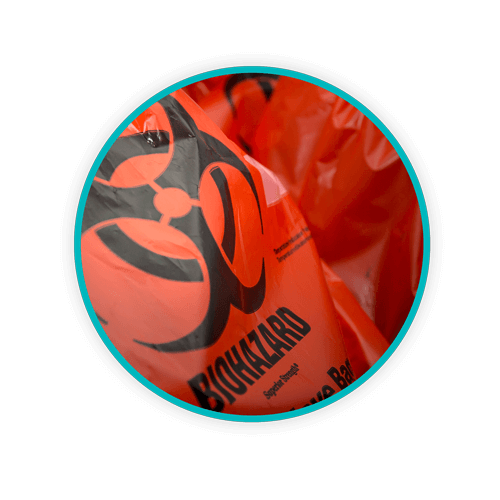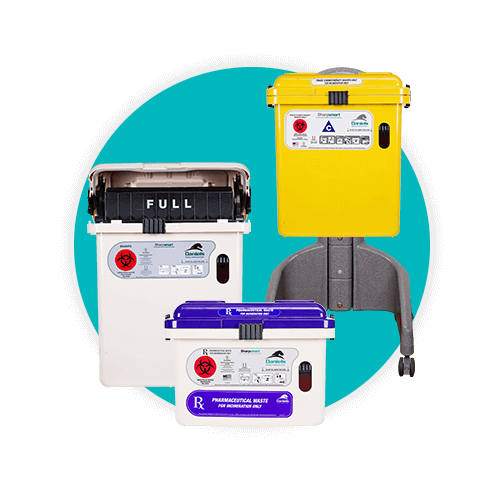South Carolina Medical Waste Disposal Services
Daniels Health is the leading expert in compliance, clinical containment and environmentally responsible waste management services. Transparent pricing, customized scheduling, immediate cost reduction.
The Daniels Difference
- We provide medical waste containers designed by clinicians for clinicians!
- All containers sanitized through a world-leading robotic washing / decontamination process.
- It is our drivers and our trucks that will service your facility, no third party hauler risk
- We are up front with our costs and transparent with our contracts
- Scheduling that supports your practice – you pay only for what you need
- Eliminate disposal-related needlestick injuries with our advanced sharps safety systems
- Eliminate the purchase, disposal costs and landfill of one-time-use disposable containers
Solutions
- Regulated Medical Waste Services
- Biohazardous Sharps Services
- Pharmaceutical Waste Services
- Chemotherapy and Hazardous Waste Services
- Onsite and online compliance and education
Does your medical waste container get washed?
Crazy question? When talking about medical waste…. We don’t think so!
Daniels Health employs rigorous washing procedures for all of its reusable sharps and medical waste containers. Assuming that pathogens are present on the container surface, a 6-stage robotic decontamination process is employed to ensure that the medial waste containers are 100% sanitized before being returned into a patient environment. Sharpsmart reusable sharps containers have been used for more than 18 years in over 5,000 hospitals worldwide, without a single suggestion of cross-infection. At Daniels, we don’t take a chance on contamination risk in a healthcare setting.
Sharpsmart. World Leading Sharps Safety Technology
Peer reviewed in four independent studies, clinically proven to reduce needlestick Injuries by up to 87%, and relied on by healthcare facilities around the world, the Sharpsmart system is driven by a single objective – To Save Lives. Designed with 13 safety features, manufactured with needle-impenetrable plastic, a gravity balanced safety tray for risk-free sharps disposal, and a built-in overfill protection mechanism, the Daniels Sharpsmart is the most advanced sharps container system in the world.
Is the "Daniels Difference" just a clever marketing phrase?
“Different” is often subjective-a different perspective, a different approach, a different focus, vision or personal preference. For us at Daniels Health, DIFFERENCE embodies all these things, but it also delivers a very different result. Reduction in needlestick injuries, reduction in waste volumes, reduction in costs, reduction in labor, increase in efficiencies, compliance, trust. We don’t promise a different methodology, we promise transformation of your current practices.
Don’t just listen to us, listen to our customers!
Countless stories of organizational change – cost and waste reduction, labor reduction, CO2 emissions reductions, improved safety.
Do you want to know firsthand how other US healthcare facilities increased the performance of their healthcare waste management with Daniels? Read their journeys in our case studies library.
How We Serve You
Across 6 countries, Daniels has become a brand name synonymous with healthcare innovation and service
In 38 years Daniels have become experts in delivering solutions for the niche requirements of healthcare. Today over 125,000 services are fulfilled annually across the United States by Daniels owned and operated fleet. From small practices to large medical facilities, our scalable business model ensures that every customer receives:
- Timely scheduled services with clear transparent communication
- Minimum disruption to patient care
- Safety and Security underpinning all biohazardous waste handling practices
- A positive and friendly customer experience
- Cost-effective customized solutions that guarantee efficiencies and maximize savings
Let's Talk!
Your time is valuable, and we don’t want to play hard to get. You can either phone us directly on the details listed on our contact page, or feel free to fill out this short form and one of our team members will get back to you as quickly as possible.


